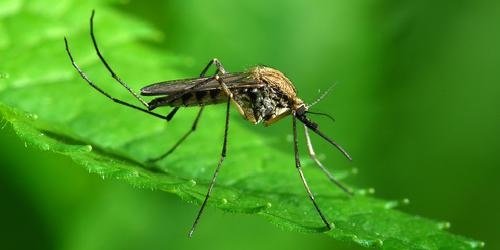
Daytona Beach, FL - According to the Florida Department of Health in Volusia County, one case of West Nile virus infection has been confirmed in the county.
Officials say none of the county's sentinel chickens have tested positive for antibodies to the virus and this single case raises concerns about the possible transmission to humans. Sentinel chickens are used to detect some mosquito-borne illnesses like West Nile virus. The chickens don't get disease symptoms, but they will test positive for antibodies if they're infected.
Officials say Volusia County Mosquito Control and the DOH will continue surveillance and prevention efforts. They also have tips for residents and visitors alike to help prevent being bitten by mosquitos:
- Drain all standing water to prevent mosquitoes from reproducing.
- Drain water from garbage cans, house gutters, buckets, pool covers, coolers, toys, flower pots, or any other containers where sprinkler or rain water has collected.
- Discard old tires, drums, bottles, cans, pots and pans, broken appliances, and other items that aren't being used.
- Empty and clean birdbaths and pet's water bowls at least once or twice a week.
- Protect boats and vehicles from rain with tarps that don’t accumulate water.
- Maintain swimming pools in good condition and appropriately chlorinated. Empty plastic swimming pools when not in use.
- Cover skin with clothes or use insect repellent.
- Clothing - Wear shoes, socks, and long pants and long-sleeves. This type of protection may be necessary for people who must work in areas where mosquitoes are present.
- Repellent - Apply mosquito repellent to bare skin and clothing.
- Always use repellents according to the label. Repellents with DEET, picaridin, oil of lemon eucalyptus, para-menthane-diol, and IR3535 are effective.
- Use mosquito netting to protect children younger than 2 months old.
- Cover doors and windows with screens to keep mosquitoes from getting into your home.
- Repair broken screening on windows, doors, porches, and patios.
The DOH also has the following additional tips for repellent use:
- Always read label directions carefully for the approved usage before you apply a repellent. Some repellents are not suitable for children.
- Products with concentrations of up to 30 percent DEET (N, N-diethyl-m-toluamide) are generally recommended. Other U.S. Environmental Protection Agency-approved repellents contain picaridin, oil of lemon eucalyptus, para-menthane-diol, or IR3535. These products are generally available at local pharmacies. Look for active ingredients to be listed on the product label.
- Apply insect repellent to exposed skin, or onto clothing, but not under clothing.
- In protecting children, read label instructions to be sure the repellent is age-appropriate. According to the Centers for Disease Control and Prevention (CDC), mosquito repellents containing oil of lemon eucalyptus should not be used on children under the age of three years. DEET is not recommended for children younger than two months old.
- Avoid applying repellents to the hands of children. Adults should apply repellent first to their own hands and then transfer it to the child’s skin and clothing.
- If additional protection is necessary, apply a permethrin repellent directly to your clothing. Again, always follow the manufacturer’s directions.
To learn what kind of repellent is right for you, go to CFPub.EPA.gov and use the Environmental Protection Agency's search tool.
As part of their statewide efforts to monitor mosquito-borne illnesses, the DOH asks FL residents to report dead birds to your county health department or on the Florida Fish and Wildlife Conservation Commissions site, MyFWC.com.
For more information go to FloridaHealth.gov or contact your county health department. For DOH-Flagler contact info go to Flagler.FloridaHealth.gov, for DOH-Volusia contact info go to Volusia.FloridaHealth.gov.
Copyright Southern Stone Communications 2017.
